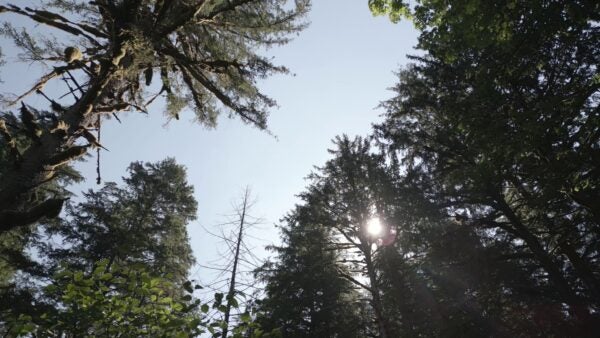In this Project, You’ll Learn About
- Regulations, policies, and programs governing commercial vessels operating in Nunavut waters
- How coastal communities can engage with, or report concerns to territorial and federal agencies
- Locations of shipping operations and the distribution of emergency response resources across Nunavut communities
About the Story Map
The guidebook developed as part of this research project to highlight marine shipping regulations in Nunavut is also captured in an interactive story map, available in Inuinnaqtun, Inuktitut/ᐊᖏᕐᕋᖅ, French, or English.
Project Summary
This project leverages ongoing research underway as part of an initiative called Coastal Restoration Nunavut, which draws on Inuit Qaujimajatuqangit (Inuit ways of knowing) to document and address the health and condition of marine ecosystems. This initiative – and its knowledge mobilization component – are driven by a community-led approach to activities, reviews, and approval.
Clear Seas partnered with a team at Dalhousie University to support the creation of a guidebook and series of posters designed to answer the questions raised by Inuit communities in Nunavut about shipping activities in the territory. Members of Hunters and Trappers Associations provided feedback to the research team to develop relevant and usable materials.

Key Takeaway
The knowledge and information made accessible through this project will help Nunavut communities to identify gaps in legislation and policy, participate meaningfully in policy discussions, advocate for regulatory changes, and become more involved in the management and governance of maritime spaces in the Nunavut Settlement Area.
Project Resources
Posters
The project posters illustrate some of the issues and information gaps identified during the community workshops held by Coastal Restoration Nunavut. They were designed to increase awareness of the governance framework related to marine shipping in Nunavut and adjacent waters. The posters cover the following issues:
- Oil spill response and preparedness
- Search and rescue Canadian Coast Guard auxiliary units
- Small craft anchorages
- Vessel discharge areas
- Navigation rights
View and download the posters in:
Guidebook
The guidebook shares some of the regulations and policies governing commercial vessels operating in Nunavut and adjacent waters. When communities understand the legal framework under which these vessels operate, they can better engage in ongoing dialogue to address risks, regulatory gaps, and impacts.
Read and download the guidebook in:
Artwork Commissioned by Clear Seas
Elaine Sulak is a youth artist from Arviat, Nunavut, who started practicing art in middle school. When asked why marine areas are important to them, Elaine replied, “coastal waters are important to us because it’s our home; home is where we belong.”
Aija Komangapik is a visual artist working primarily in digital media. She was born and raised in Iqaluit, Nunavut, and is currently apprenticing under her father as a stone sculptor. Komangapik is the winner of the 2019 Indigenous Arts & Stories Award and has created illustrations for many well-known causes and organizations over the years.
Research Team

Lucia Fanning, Ph. D.
is a professor emerita in the Marine Affairs Program at Dalhousie University. Her research revolves around the value of all branches and sources of knowledge to better inform decisions affecting the sustainability of coastal and marine ecosystems worldwide. For many years, she has been working with Indigenous partners from across Canada to understand how different knowledge systems influence fisheries decision-making on Canada’s Pacific, Atlantic and Arctic coasts as well as inland fisheries in Ontario. An extension of this work focuses on the use of Inuit knowledge in Nunavut to identify and implement coastal restoration across the territory.

Jade Owen
is the project advisor for Coastal Restoration Nunavut. She has been living and working in Iqaluit, Nunavut, since 2015.

Breanna Bishop
is a Research Assistant with Coastal Restoration Nunavut and a Ph. D. student at Dalhousie University. Her research focuses on how Inuit and scientific knowledge can both support climate change planning and decision making.



